Since writing this post, we’re proud to say that we’ve been working on more electric campervans than ever.
Check out our webpage on electric camper conversions for more information.
At Love Campers we’re dedicated to sustainability and respect for the natural world. Reducing our carbon footprint and building more environmentally friendly campervans is a constant work in progress for us. Converting an electric campervan is something we’ve been wanting to do for a long time, and the fact that it’s coincided with this years’ Earth Day, makes us feel like the heavens are aligning for us! 🙂
Making our campervans more green has been a project from our earliest days. Several year ago we set ourselves a challenge to convert our Mercedes Sprinter in the most environmentally conscious way we could. This Sprinter design became our first attempt at building a high-performance, low carbon campervan, and we learnt so much during that build.
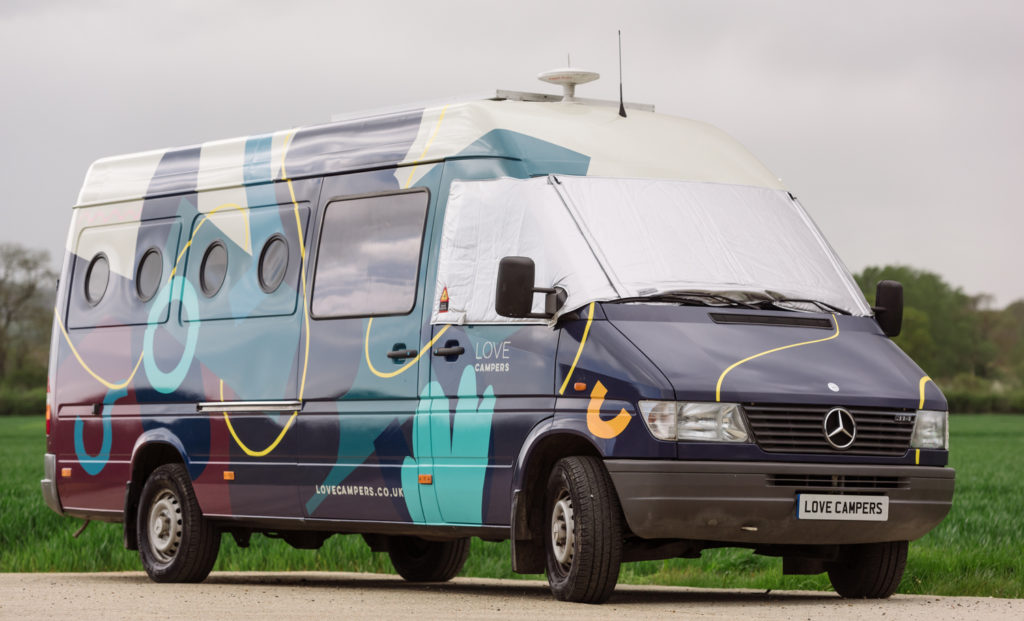
Converting an electric campervan
Today, we’re excited to share the news that we have a customer’s electric van in the workshop, being converted as we type! The Nissan e-NV200 is a compact and versatile van and we’re currently experimenting with our design plans to determine which Love Campers van layout will work best.
Make sure you’re following us on Facebook and Instagram for all our detailed eco-camper updates!
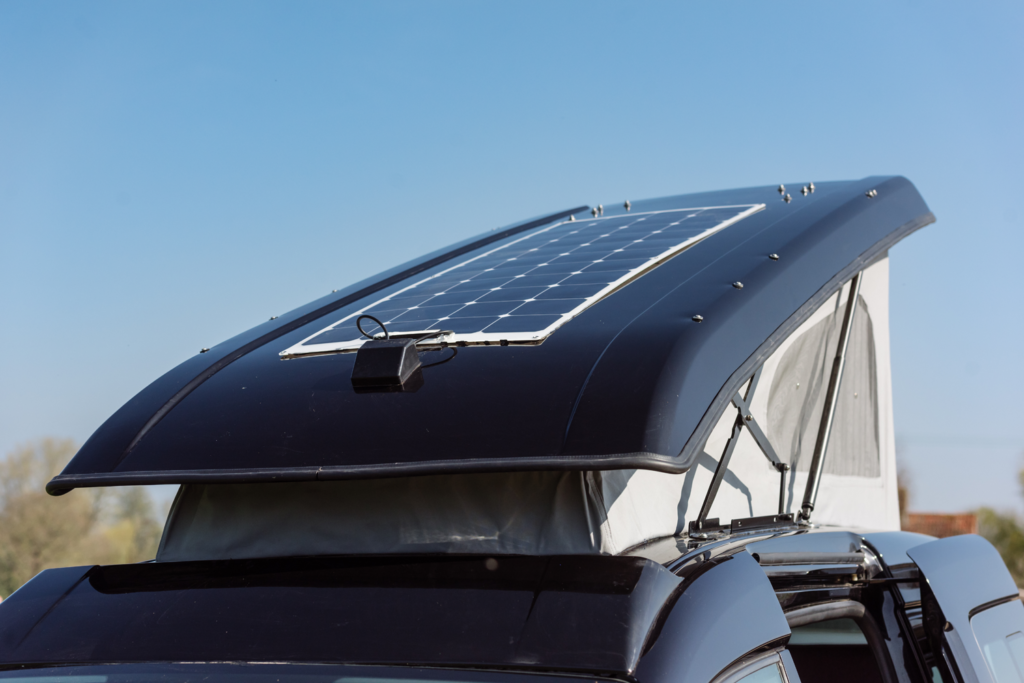
Solar Energy on our Campervans
One way we’ve been able to make our campervans more ecologically friendly has been to build campervans that function off-grid, from renewable solar power. Your entire campervan system can be powered from clean solar electricity through fitting powerful solar panels and connecting them to the leisure battery system.
Our Love Camper vans can even be used as a fully functioning off-grid mobile office. Perfect for ‘working from home’, complete with your own beautiful view of nature! Check out our Custom Camper Home Office Van on the blog.
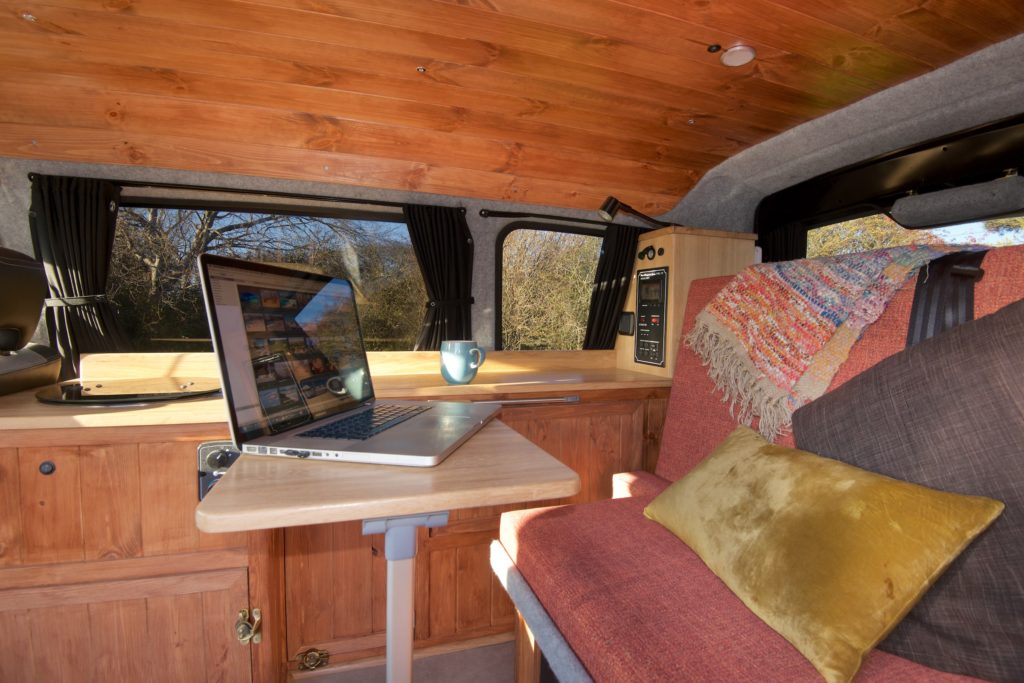
Why haven’t we worked on any electric campervans until now?
Until now, the technology and infrastructure needed for electric vehicles was not nearly developed enough to make any real sense for campervan adventurers. This meant that converting an electric campervan hadn’t become a viable option for us.
There are a few reasons why electric vehicles haven’t taken off in popularity until now. The main ones being:
- Charging points were few and far between, making it impossible to drive long distances.
- Larger electric vehicles had a limited range.
- Electric vans were extremely expensive making them inaccessible for most people.
Skip forward to today, and we’re happy to report that things have changed massively in just one year. There are now more than 35,000 charge point connectors across the UK in over 13,000 locations, in comparison to only 5000 one year ago! That’s more public places to charge than petrol stations, with around 7,000 charge point connectors added in 2020 alone.
The range of electric vehicles available on the market is also picking up pace at an electrifying rate! More manufacturers than ever are seeing the benefits of producing electric cars and vans, particularly in response to many city centers beginning to impose stricter ‘clean air zones’. Nissan and Renault dominate the small van sector, but there are also models from Citroën and Peugeot.
This growing choice means that an electric vehicle is a more viable proposition than ever before.
You’ll find a handy list at the end of this blog featuring all the vans that are available through the governments “plug-in grant scheme” (which we’ll explain in more detail below!)
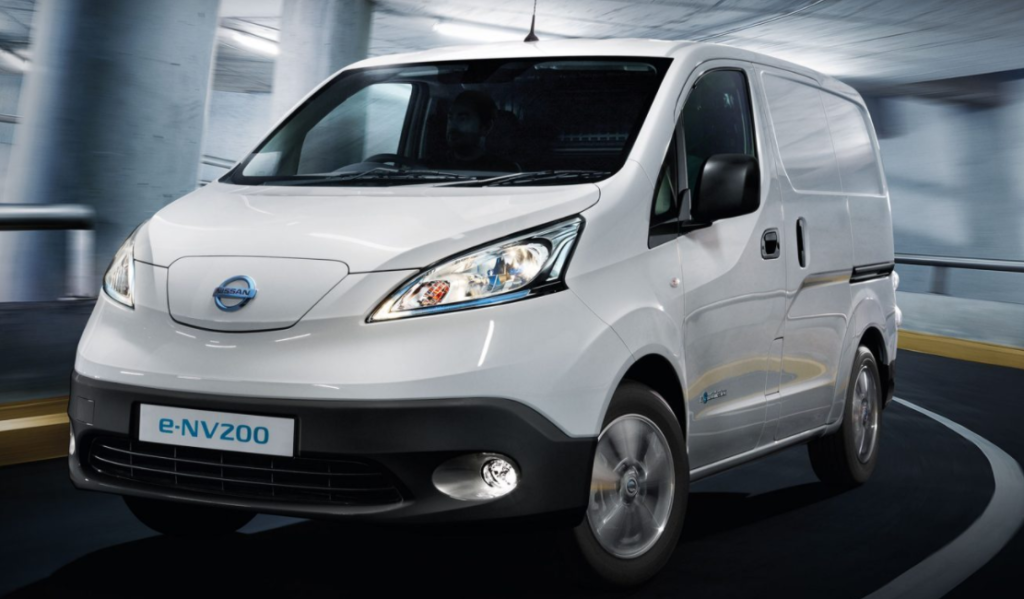
A future of Electric Campervans
The future of transportation will, undoubtedly, be electric. How long it will take to become truly available and accessible for the majority of us, is yet to be seen.
So what are the main benefits of electric campervans?
Better for the environment
Most importantly in our opinion, electric vans are far better for the environment as they produce no carbon in their running. Less emissions will lead to reduced greenhouse gasses and will help to combat climate change.
Better for our health
Pure electric vehicles have no tailpipe, so they don’t emit any exhaust gases, which reduces local air pollution. Improved air quality, particularly in congested cities, will reap huge positive benefits for human health as well as the health of our planet.
Cost effective
Once you have paid the initial price for the van, electric vehicles are far more cost effective than those that run on fossil fuels, costing an average of only 2p per mile to run. You’ll also be exempt from some other costs such as congestion charges and road tax.
Free parking
As described on the EDF website a widely introduced incentive to encourage electric driving is free, priority or dedicated parking bays that are often positioned with convenience in mind.
Should I get an electric campervan?
So, should we all be rushing out to get an electric campervan?
Ultimately, protecting the planet involves consuming less and thinking about our current habits. One of the main ways we can protect our planet today is to re-use and fix broken elements.
Research suggests that almost all the carbon emissions of electric vehicles are produced during their manufacture, with a secondary source of emissions involving their subsequent transport before sale. However, many manufacturers have been working to reduce the carbon footprint from their production lines and supply chain so it’s worth fully researching the model you intend to buy.
Of course, it’s important to question what is best for the environment in regards to your own personal situation. If you already have a vehicle of your own you may wish to ‘patch it up’ and make do until it’s on its very last legs.
And if you’re a van owner already, don’t forget there are many ways you can “green up” your existing campervan lifestyle without having to buy an electric van.
In our blog post ‘Eco Swaps on the Road’ we share some of the ingenious ways you can make vanlife more environmentally friendly every day.
Low-emission vehicles eligible for a “plug-in” grant
If you’re really keen to buy a new electric campervan (and we can understand why!), it’s worth looking into some exciting grants that are available to help you buy.
You can get a discount on the price of a brand new low-emission vehicle through the current “plug-in” grant scheme that the government offers directly to the vehicle dealerships and manufacturers.
If you’re after a small van “the grant will pay for 35% of the purchase price, up to a maximum of £3,000.”
And if you’re after a large van “the grant will pay for 35% of the purchase price for these vehicles, up to a maximum of £6,000.”
Another incentive we recently discovered is that you can also get up to £350 (including VAT) off the cost of installing a charger at your home through the Electric Vehicle Homecharge Scheme.
Bare in mind that only some vehicles have been approved by the government to be eligible for a grant. We personally think it’s a pretty extensive list and were very excited to see that the van we’re currently converting (the Nissan e-NV200) is featured!
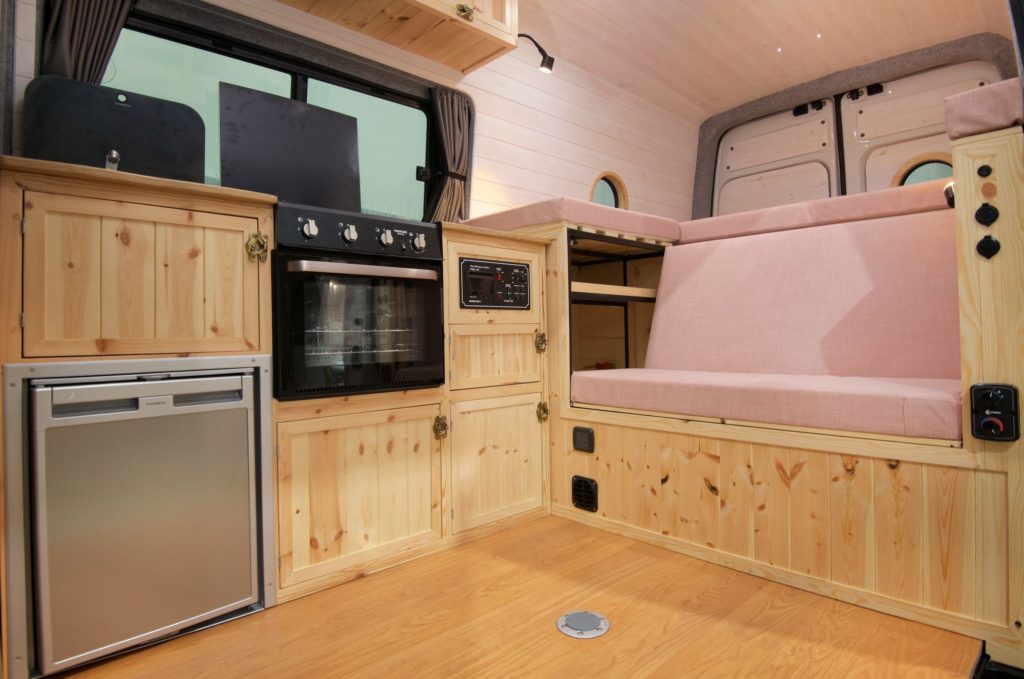
Converting an Electric Campervan with Love Campers
We’ll be spending the next few weeks in the workshop building a unique Love Campers Nissan E-NV200
If you’re in the market for a small campervan which you’d like to use primarily as a day van or take short local trips in, or you are happy to plan your longer trips around stopping at charging points, we think that an electric campervan could make a very good option for you.
If you’re thinking of buying an electric base vehicle and would like us to convert it for you please do get in touch before you purchase so we can work out whether converting an electric campervan is something we could do for you.
We’d love to help you make your green-camper-dreams come true!
List of Electric Vans eligible for the “plug-in” grant
Small electric vans:
- Maxus eDeliver 3 (short wheel base variants)
- Nissan e-NV200
- Renault Kangoo ZE
- Renault Zoe Van
Large electric vans:
- BD Auto eTraffic
- BD Auto eDucato (3.5 tonnes)
- Citroen e-Dispatch
- LEVC VN5
- MAN eTGE
- Maxus eDeliver 3
- Maxus eDeliver 9
- Mercedes-Benz eVito
- Mercedes eSprinter
- Peugeot e-Expert
- Renault Master ZE
- Renault Trucks Master ZE
- Vauxhall Vivaro-e
- Volkswagen ABT e-Transporter
- LDV EV80
Thanks for reading the post!
Read more on the blog:
- Custom Campervan Conversions: The Perfect Mobile Home Office?
- What is Hutting? The new lifestyle trend
- Three things we’ve learnt during the pandemic
Follow us on our Facebook and Instagram accounts for our latest news and posts!
